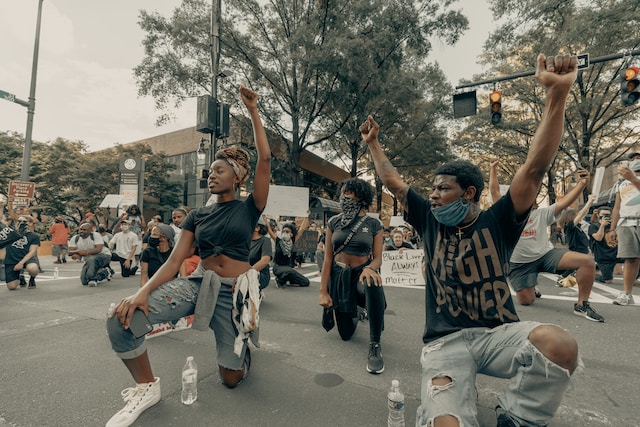
(Liberal Voice Network) – In a significant development for fair representation and the advancement of Black voting rights, the Supreme Court has lifted its hold on a Louisiana political remap case. This decision increases the likelihood that the Republican-dominated state will be required to redraw boundary lines to create a second predominantly Black congressional district.
The ongoing legal battle surrounding the GOP-drawn political boundaries has garnered attention, with a federal judge, Democratic Governor John Bel Edwards, and opponents asserting that the map is discriminatory and unjust towards Black voters.
The current map, utilized in Louisiana’s November congressional election, results in white majorities in five out of six districts, all currently held by Republicans. This disparity persists despite Black individuals accounting for one-third of the state’s population. The creation of another predominantly Black district could potentially yield an additional congressional seat for Democrats.
Ashley Shelton, leader of the Louisiana-based Power Coalition for Equity and Justice, expressed great enthusiasm, emphasizing that this development puts them back on track toward establishing a second majority-minority district.
The Louisiana Legislative Black Caucus released a written statement expressing confidence that the state will have two majority-Black districts by the 2024 congressional election, recognizing that there is still work to be done.
Governor Edwards reiterated his commitment to fairness, stating that this issue revolves around simple math, basic fairness, and adherence to the rule of law. He expressed confidence that a fair map will be implemented in the near future.
Every decade, state lawmakers redraw political boundaries based on new U.S. Census Bureau data. This process significantly impacts which political parties, viewpoints, and individuals wield influence over governmental bodies responsible for legislation, utility rates, and public school policies.
The Louisiana case had been on hold pending a decision in a redistricting case in Alabama. The Supreme Court’s recent order follows its rejection of a congressional redistricting map in Alabama earlier in June.
Both Alabama and Louisiana have only one congressional district where Black voters constitute a majority. Lower courts had raised concerns that the maps diluted Black voting power, contravening the landmark federal Voting Rights Act.
The Supreme Court had allowed Louisiana’s challenged map to be used in the previous year’s elections while considering the Alabama case.
In Louisiana, U.S. District Judge Shelly Dick invalidated the map in June 2022, citing violations of the Voting Rights Act and the weight of evidence showcasing Louisiana’s history of voting-related discrimination. Judge Dick directed the legislators to convene a special session to revise the map and incorporate a second district with a majority of Black voters. Unfortunately, the lawmakers did not meet the stipulated deadline, leading Judge Dick to declare her intention to establish a map according to her own discretion.
The case in Louisiana had been appealed to the 5th U.S. Circuit Court of Appeals in New Orleans before the Supreme Court intervened. The justices now permit the appeal to proceed prior to next year’s congressional elections.
U.S. Representative Troy Carter, Louisiana’s sole Democratic and Black congressman, commended the Supreme Court for lifting its hold, emphasizing the significance of fair and equitable representation in a healthy democracy.
The redistricting process in Louisiana has been a contentious battle between the Republican-dominated legislature and Democrats, including Governor Edwards, since February 2022. Alongside the legal disputes, the debate over the map saw Governor Edwards vetoing the boundaries, only to have the legislature override his veto. This event signified a significant occurrence as it had been close to thirty years since legislators last disregarded a governor’s veto of a bill that had been approved.
While Republicans argue that the current map is fair, critics contend that including the widely dispersed Black population in two separate congressional districts would result in narrow Black majorities, potentially diminishing Black voting power.